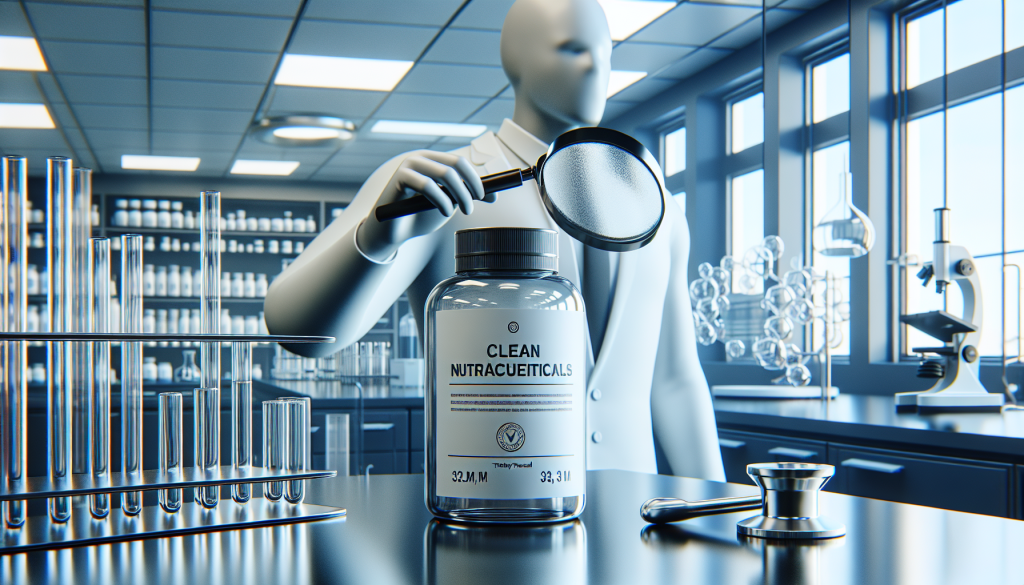
In the realm of health and wellness supplementation, the purity and potency of the products one consumes are non-negotiable. With the surge in consumer interest in dietary supplements, the importance of quality assurance and the veracity of product labels have become hot topics within the industry. Amid this landscape, Clean Nutraceuticals, a brand priding itself on formulating “clean” and effective wellness products, has been subject to scrutiny. Consumers and critics alike are posing a critical question: Is Clean Nutraceuticals really third-party tested?
To fully understand the significance of this inquiry, it’s important to first grasp what third-party testing entails. Independent third-party testing offers an objective confirmation that a product contains what it claims on the label and is free of harmful levels of contaminants. This process is vital for ensuring that supplements are safe, effective, and trustworthy. Organizations like NSF International and the United States Pharmacopeia (USP) are well-regarded in the industry for their rigorous testing standards and certification programs. These organizations help shield consumers from spurious and hazardous supplements, setting a benchmark for quality and safety.
Given the mounting concerns surrounding nutritional supplements, transparency from supplement providers is key. Unverified claims and the potential for false labeling have led to public wariness. In a climate where anyone can market a supplement, third-party testing stands as a beacon of reliability. When it comes to Clean Nutraceuticals, a mixed picture emerges from an investigation into whether the brand’s products are third-party validated.
On one hand, demands for corroborative evidence of third-party testing have been echoed across various platforms, including online community discussions such as Reddit, where users have expressed skepticism regarding the authenticity of Clean Nutraceuticals’ claims. These forums often feature anecdotal accounts and should be navigated with discretion. However, they can also reflect a collective demand for greater transparency and factual information supporting the quality and safety of supplements.
In direct opposition, content on social media platforms like TikTok offers adefense for Clean Nutraceuticals, asserting that the range is indeed put through third-party testing. However, without concrete evidence, such claims remain part of a conflicting narrative that leaves the consumer in a quandary.
Unfortunately, to date, Clean Nutraceuticals does not conspicuously display any known third-party certification stamps on their product labels—a practice that has been indicated by industry watchdogs as a marker of third-party validation. The absence of clear documentation or certification marks from entities such as NSF or USP casts doubt on the validity of their third-party testing assertions.
The company’s own narrative, as per the information provided on their corporate website and official FAQ section, promotes high-quality ingredients and comprehensive support for well-being. Nonetheless, no unequivocal evidence or mention of third-party testing is presented—a conspicuous omission for a consumer base increasingly vigilant about supplement purity and labeling accuracy.
It is worth noting that the absence of a third-party certification does not inherently prove that a company’s products are substandard or harmful. Some companies conduct rigorous in-house testing or partner with independent laboratories without seeking certification. However, in the context of consumer assurance and industry credibility, third-party certification stamps on product labels serve as an expedient way to communicate commitment to quality and safety.
For stakeholders in the clean living movement and for discerning consumers who want the best for their health, the situation necessitates a call to action for Clean Nutraceuticals. They must take concrete steps to address these questions and provide verifiable evidence of third-party testing.
In summary, the definitive answer to the question of whether Clean Nutraceuticals is third-party tested is elusive, as current public-facing information provides no conclusive proof of such testing. In an age where certifications support consumer demand for quality and transparency, it’s imperative that Clean Nutraceuticals addresses the ambiguities surrounding their product testing and adopts clearer, more accessible validation measures to establish trust with consumers seeking truly “clean” and verified supplements.